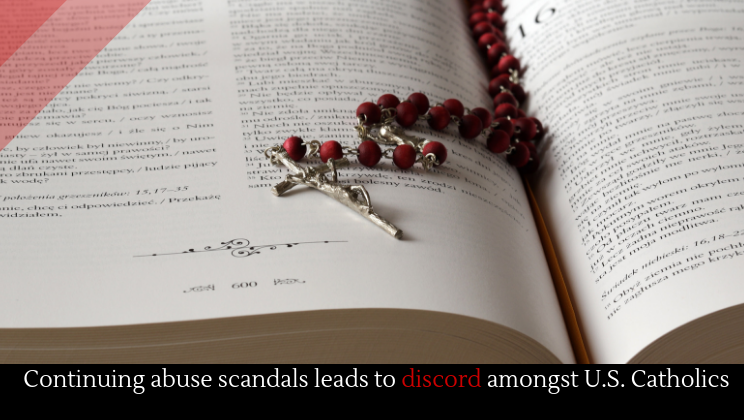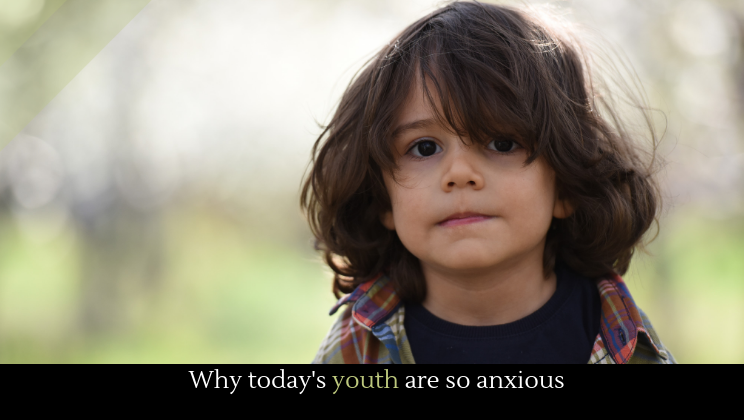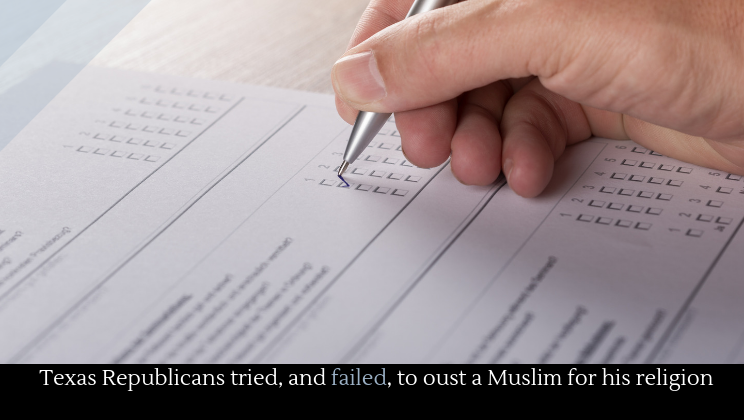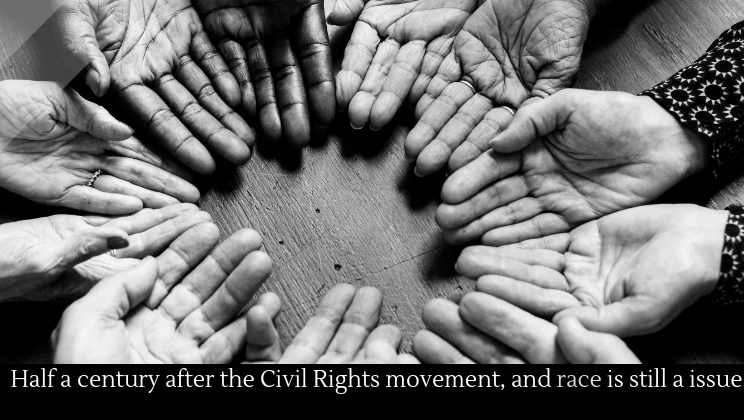Author: Josh Taylor
Evidence increasingly points to Russian sway over Trump
Posted by Josh Taylor / January 14, 2019Evidence is mounting that either Vladimir Putin, for some reason, holds sway over Donald Trump. This topic was reignited when it was revealed that the FBI questioned Trump’s allegiance to the U.S. According to Newsweek, Carl Bernstein has been told by a source that Mueller’s report will claim that Donald Trump helped Putin destabilize the United States: “From a point of view of strength… rather, he has done what appears to be Putin’s goals. He has helped Putin destabilize the United States and interfere in the election, no matter whether it was purposeful or not.”
Whether Trump’s behavior was purposeful is a serious question. The Washington Post argues that it was in this opinion piece. A legal blog further suggests that the investigation against Trump might be tied into questions of national security.
USA Today argues that it’s incorrect to think that Trump is a Russian agent, his actions are nevertheless problematic:
While Trump is not an “agent” of the Russian Federation (too many people use this kind of language without knowing what it means to counterintelligence officials), it seems at this point beyond argument that the president personally fears Russian President Vladimir Putin for reasons that can only suggest the existence of compromising information.
More news.
Read MoreDoes status make it easier to make friends?
Posted by Josh Taylor / January 14, 2019Wherever you live in the world, whatever your politics or ideals, status is important. But to what capacity is it important? Psychology Today recently summarized the results of a study that asked how important status symbols were in making friends. Perhaps surprisingly, status symbols hurt your prospects of making friends:
This effect, called the “Status Signals Paradox” (Garcia, Weaver, & Chen, 2018), has also been demonstrated in other contexts besides cars. For example, one study focused on wrist watches. When asked to decide what kind of watch to wear when going out to a social event, one group of research participants thought that wearing an expensive Tag Heuer watch would be more effective in making new friends than wearing an inexpensive generic watch. However, a different group of research participants, who were in the role of “would-be friends,” rated which of two individuals at the social event they would prefer to meet: a person wearing the expensive Tag Heuer watch or a person wearing an inexpensive generic watch. Results showed that would-be friends were more interested in forming new friendships with the person wearing the inexpensive generic watch than the person wearing the expensive Tag Heuer watch.
This points to an interesting dichotomy in human nature. On the one hand, we want people in our lives who can help us. But on the other hand, we also want genuine friendships and connections, and social status gets in the way.
More about health.
Read MoreContinuing abuse scandals leads to discord amongst U.S. Catholics
Posted by Josh Taylor / January 13, 2019Since the 2002 Boston Globe investigation that revealed evidence of widespread coverup of sexual abuse in the Catholic Church, the nationwide public perception of the Church has steadily declined. In October 2010, a Pew Forum survey indicated that only 30% of U.S. Catholics approved of Pope Francis’s handling of the abuse scandal:
The declining confidence in Francis’ handling of the sex abuse crisis is broad-based, occurring across a wide variety of subgroups of U.S. Catholics. Since 2015, for instance, the share who give the pope “excellent” or “good” ratings for his handling of the issue declined by 24 points among Catholic men and 23 points among Catholic women. Similarly, both younger and older Catholics have grown increasingly critical of the pontiff’s handling of the situation.
Opinion of priests is about as poor. Only a third of American Catholics believe priests are honest or ethical, and fewer “than half of the Catholics surveyed by Gallup said they had confidence in organised religion, a drop of eight percentage points over the period.” Confidence is further shaken by continuing prosecution of priests, such as a recent case in Pennsylvania in which a priest was sentenced to 14 years for molesting two boys or a priest who received 25 years for possession of child porn amongst other things. Even worse is that Church’s unwillingness to be transparent.
More news.
Read MoreWhy today’s youth are so anxious
Posted by Josh Taylor / January 13, 2019I always thought that if there were an olympics of stress, I would be a serious contender for gold. It’s a really lame “skill” to have, but I was bred to be a champ. I know I’m not alone in feeling that way––many of us do. It turns out that we really were bred to be champion stressers. It also turns out that we as a society are getting better at training out children to be stressed.
There’s a fantastic Vox piece from a youth pastor describing just how anxious the kids he deals with are, and why they’re so anxious. Adults assume that maybe the kids are too involved in social media, and that’s causing them stress. While it may contribute, that’s not the main factor this pastor saw. He suggests that we’re forcing the pressures of adulthood on our kids, and we’re doing it far too early.
Students get grade notifications on their phones, their teachers can remind them of assignments through phone apps, they’re pushed to find and pick careers early, they understand and deal with their parents’ economic anxiety, and they’re beginning to learn that the American dream is a lie at a very early age.
More about health.
Read MoreEverything you should know about the R. Kelly situation
Posted by Josh Taylor / January 12, 2019The impact of the accusations against R. Kelly go beyond the world of hip-hop––they spread throughout the entertainment industry. If you have no idea what’s going on with the R. Kelly situation, you should start with this incredible, short, and hyperlinked history provided by NPR:
Aug. 31, 1994: R. Kelly, then 27 years old, marries Aaliyah, then 15
Dec. 21, 2000:Chicago Sun-Times prints the first allegations of sex with minors
Feb. 8, 2002: Chicago police reveal investigation into alleged child pornography
June 5, 2002: Kelly indicted on 21 counts of child pornography
May 9, 2008: Trial begins in Kelly’s case in Chicago
June 13, 2008: Kelly is acquitted on all counts
July 17, 2017: BuzzFeed publishes stories of women in Kelly’s alleged “sex cult”
July 23, 2018: Kelly releases 19-minute song, “I Admit”
Oct. 4, 2018: Kelly’s ex-wife accuses him of physical abuse
Just glancing at the stories gives you a pretty good sense of what’s going on here: a famous man is openly and unapologetically a pedophile––after all, he married a 15-year-old girl when he was 27. That begs the question, why did people ignore this? New York Times explains that he was able to get away with it for so long for a variety of reasons: the public doesn’t believe young black girls when they make accusations of abuse; parts of the black community and music industry rallied around Kelly to shield him, and the music industry has a long history of allowing such abuse.
Following the release of a documentary called “Surviving R. Kelly,” however, Chicago authorities have opened an investigation. So far, they have found no evidence of sexual enslavement and abuse in R. Kelly’s Trump Tower apartment.
R. Kelly’s daughter has spoken out, saying, amongst other things: “I am well aware of who and what he is. I grew up in that house.”
More about music.
Read MoreThe latest updates about the government shutdown, wall
Posted by Josh Taylor / January 12, 2019The government shutdown is, as of this writing, nearly the longest in U.S. history. As of tomorrow, January 12, 2019, it will be the longest shutdown in U.S. history. The effects of the shut down are beginning to stack up.
The TSA, for example, has stopped receiving pay. According to the New York Times, TSA agents aren’t staying home in droves, but airports are suffering:
At least one airport, Miami International Airport, will start closing one terminal early each day, starting on Saturday, because of a shortage of screeners employed by the Transportation Security Administration, said Greg Chin, an airport spokesman.
While some, like the TSA agents, are being financially wrecked, others are oblivious to the problems others are facing. Fortunately, although pay is stopping for some workers, it seems as though healthcare will continue.
Previously, Trump threatened to declare a state of emergency to build the wall. Reuters reports, however, that Trump has said he would not do so. That might mean that the shutdown will continue to do so. The financial effects of a prolonged shutdown could be devastating:
According to an estimate by S&P Global Ratings, it will only take another two weeks to cost the economy more than $6 billion, exceeding the $5.7 billion that President Donald Trump demanded to fund his proposed border wall. The U.S. economy will have lost $3.6 billion by Friday, according to S&P.
More news.
Read MoreTexas Republicans tried, and failed, to oust a Muslim for his religion
Posted by Josh Taylor / January 11, 2019Some Tarrant County Republicans recently attempted to remove Dr. Shahid Shafi from his position as the party’s vice chair. Precinct Chairman Dorrie O’Brien organized the attempt, saying
We don’t think he’s suitable as a practicing Muslim to be vice chair because he’d be the representative for ALL Republicans in Tarrant County, and not ALL Republicans in Tarrant County think Islam is safe or acceptable in the U.S., in Tarrant County, and in the TCGOP, and there are big questions surrounding exactly where Dr. Shafi’s loyalties lie, vis a vis Democrat and Republican policies.
The story almost immediately gained national attention––and it was very bad PR for the GOP:
“This (Shafi) story has gained national attention and has put the party in a bad light, all thanks to the actions of a few,” said William Busby, a former precinct chairman and leader for the Tarrant County Republican Party. “Corporate donors, the big donors, don’t want to be associated with a party that’s going in the direction of excluding people based upon their religious beliefs.”
Both Ted Cruz and George P. Bush (Jeb Bush’s son) decried the attempt to remove Dr. Shafi, pointing out that it’s both un-American and unconstitutional.
In an open letter, Dr. Shafi wrote something important:
A nation divided by hate and fear makes us weaker, and our enemies stronger. It is through inclusion, and not exclusion, that we will be able to build strong communities, where neighbors trust and protect each other, and our enemies cannot find refuge.
More news.
Read More
New research reveals sea is rising faster than previously thought
Posted by Josh Taylor / January 11, 2019Recent research reveals that oceans are heating 40% faster than a U.N. panel estimated five years ago. The research also points out that ocean temperatures have set records for the past several years.
According to the New York Times:
surging water temperatures are already killing off marine ecosystems, raising sea levels and making hurricanes more destructive.
As the oceans continue to heat up, those effects will become more catastrophic, scientists say. Rainier, more powerful storms like Hurricane Harvey in 2017 and Hurricane Florence in 2018 will become more common, and coastlines around the world will flood more frequently. Coral reefs, whose fish populations are sources of food for hundreds of millions of people, will come under increasing stress; a fifth of all corals have already died in the past three years.
Scientists say that 2018 will be the warmest year on record. By the end of the century, seas are projected to raise 30cm. But we shouldn’t think we have another 80 years until we start to see damage. According to the Miami Herald:
By 2040, 64 percent of county septic tanks (more than 67,000) could have issues every year, affecting not only the people who rely on them for sewage treatment, but the region’s water supply and the health of anyone who wades through floodwaters.
The problem is already bad––and it’s because of climate change.
More news.
Read MoreIn the past decade, STEM majors have soared while humanities suffer
Posted by Josh Taylor / January 10, 2019Universities bestowed nearly 30% more degrees in 2015-2016 than they did in 2005-2006. Despite the overall increase, not all majors or fields saw a rise. Rather, the degrees in the humanities plummeted, while STEM field degrees shot up by about 60%:
Education suffered the most dramatic loss, a decrease of 20,021 graduates (19%); not since 1986 have there been so few education graduates.
English saw a decline of 22% or 12,301 graduates.
Philosophy and religious studies declined 15%.
Transportation graduates also dropped 15%.
Architecture and related fields were down 7%.
Foreign language graduates were off 5%.
Liberal arts and general studies had a dip of 3%.
Identity studies (encompassing ethnic, area, cultural, gender and group studies) realized a negligible decrease of 39 graduates, less than .5%.
Social sciences and history slipped .2%.
All other majors had increases in baccalaureate degrees, with ten fields growing by 50% or more:
Health professions more than doubled, from 91,973 to 228,896 graduates. This was the largest absolute increase of any major and was almost tenfold more the number of health profession graduates in 1970.
Parks, recreation and fitness studies doubled its graduates from 25,490 to 50,918.
Homeland security and law enforcement graduates increased 73%.
Communications technologies increased graduates by 62%.
Agriculture and natural resources grew 61%.
Biological and biomedical sciences added 43,142 graduates, an increase of 61%.
Engineering saw a 60% increase in its graduates.
Multi and interdisciplinary studies were also up 60%.
Public administration and social services majors increased 57%.
Mathematics and statistics saw an increase of 54%.
Colleges are struggling to keep students interested in the humanities, but for now with little avail:
Unless colleges in the United States want to follow the European model, where prospective students apply to specific degree programs instead of a given university, the choices of American students will likely always shift with the winds of employment. Some studies suggest that many of the tasks done by humans in stem fields will be automated in the future; robots may well end up writing most programming and intelligent algorithms. So if elite colleges just wait long enough, perhaps the humanities will make a comeback as humans look for the kind of knowledge that helps them complement rather than compete with technology.
Ivy League schools have not seen as precipitous a decline in humanities majors, though––specifically history. The Daily Beast opines that this is bad for the future of America:
An epidemic of historical amnesia already plagues this country, which has often paid a terrible price and done grave harm to other foreign people and lands due to its ignorance of the past. Orwell could have written that those who study the past control the future. The rich and privileged already own vast swathes of America and can look to a comfortable future. Can we afford their taking control of the past too?
I’m not sure the doom-and-gloom tone is necessary. As a university humanities instructor, I deal with lots of STEM students who take my courses for prerequisites. They’re not the best writers or readers (because they haven’t been trained to be), but they’re bright and my courses help them improve. Instead of lamenting lack of majors, we should bolster humanities prerequisites and ensure that all instructors are excellent teachers.
More about education.
Read MoreHalf a century after the Civil Rights movement, and race is still a issue
Posted by Josh Taylor / January 10, 2019We throw around the terms “race” and “racism” so much that we don’t know what they mean anymore. So let’s start with some quick definitions:
Race: A race is a phenotypically similar group that shares non-biological characteristics such as behavior, disposition, work-ethic, and criminality. In other words, people who look alike tend to act alike.
Racism: The belief that non-biological characteristics are shared by phenotypically similar people. Furthermore, those traits are transmitted through procreation. In other words, people who look alike have the same characteristics, and they pass those characteristics on to whomever they mate with.
Of course, race doesn’t exist. Criminality is not biologically inheritable––instead, it is complexly related to both nature and nurture. Nor are any of the other traits mentioned solely linked to biology. Although race doesn’t exist, the belief in race is still a potent force in America.
Black families are still being targeted for harassment.Vandals spray paint “get out” on their walls and threaten arson:
More than 300 entries were reports of harassment or menacing at people’s homes, targeting people of a variety of races and religions. The most frequent victims were African Americans. Indeed, African Americans are the most frequently victimized group nationally for hate crimes, according to data from the FBI.
This is a very real problem that needs to be addressed. Before doing so, however, it’s important to clarify the national discussion on race. Take this NBC News article, for example, which describes liberal parents who worry about raising their kids in a racially sensitive manner:
People who identified as more politically liberal were much more willing to acknowledge the existence of racism, and to talk to their children about it. Many of these parents identified as specifically anti-racist, and were determined to teach their kids to work against bigotry and inequality. Parents encouraged their kids to do charitable work, for example, both in their own communities and on (expensive) overseas trips.
Yet, as [sociologist] Hagerman told me, “all of these families in their own ways were participating in the reproduction of racial inequality.” Children were sent to private school, or when they went to public school benefited from private tutors or enrichment classes. Even community service can reproduce racist ideas. It’s hard to see people as equals when you always have power over them, or when your primary experience with them involves giving them charity.
The spectacle of well-intentioned people working, half unconsciously, to solidify and perpetuate their own power is not an encouraging one. “I feel like my findings are pretty dismal,” Hagerman admits. “When you have people who have a lot of wealth alongside this racial privilege, they’re ultimately making decision that benefit their own kids, and I don’t know how you really interrupt that.”
This assessment is deeply problematic because it conflates “race” with another of other issues, most importantly class. Without any explanation or evidence, the author and the cited sociologist link sending kids to private school with institutional races. There are certainly cases in which parents sent kids to private school in order to avoid racial integration. In the cases studied, however, who’s to say whether that has anything to do with the issue at hand? Even nation-wide, when the public education system is in crisis, it’s hard to blame parents for wanting a better option for their kids. Is that institutional racism, or just people of higher classes taking advantages of the opportunity wealth affords them?
Race should still be part of the discussion, but it cannot be the only part of the discussion––or even the most important part, in some cases.
More news.
Read More1.4 million Florida felons have right to vote restored
Posted by Josh Taylor / January 9, 2019Since 1868, felons in Florida could not vote. A law was passed barring them from the civic process not for legitimate punitive reasons. Rather, it was a Jim Crow tactic meant to exclude the recently-freed slaves from the democratic process.
Technically felons could apply to vote, but due to extreme difficulties in the bureaucratic process, few felons even bothered to apply, knowing they wouldn’t get approved or would make a mistake in the multiyear process that disqualified them.
Felony disenfranchisement was a critical part of the 2000 election. Al Gore lost the state of Florida because of felony disenfranchisement (in addition to other dubious electoral practices). After that election, felony disenfranchisement became more common.
After January 8, 2019 though, things are different: 1.4 millions Florida felons have had their right to vote restored:
The amendment was written to be “self-executing” so its mandatory provisions could take effect on January 8, Pearson said. After DeSantis called for implementing language for the law in December, the ACLU and others sent a letter to the secretary of state asking it for guidance on how to conduct voter registration for the newly enfranchised population.
More news.
Read MoreReactions to Trump’s address
Posted by Josh Taylor / January 9, 2019On Tuesday night, Trump delivered the first Oval Office address of his presidency. This post will briefly summarize the reactions.
NPR culled seven takeaways from the speech:
The shutdown is nowhere near over.
Trump is continuing to fear-monger.
The president was really trying to reach wavering Republicans.
He believes federal workers want this.
The optics were good.
Democrats want to end the shutdown, Trump wants the wall.
A national emergency might be the only way out.
The New York Times fact-checked the speech. Most of his statements require context, according to The Times, or were a little misleading. There was only one outright falsehood:
“The wall will also be paid for, indirectly by the great new trade deal we have made with Mexico.”
False.
First, the revised North American Free Trade Agreement, known as the United States-Mexico-Canada Agreement, has yet to pass in Congress. Any economic benefits from the agreement, if it passes, will most likely come in the form of lower tariffs for American companies or higher wages for American workers.
This is different from Mr. Trump’s campaign promise that Mexico would finance the wall.
The Washington Post was more critical, calling his speech misleading “from beginning to end.”
A Washington Post opinion piece argues that Trump’s speech was more successful than the Democrat’s response. Time, among others, noted that social media found the Democrat response humorous, since Pelosi and Schumer look like angry parents.
More news.
Read More










